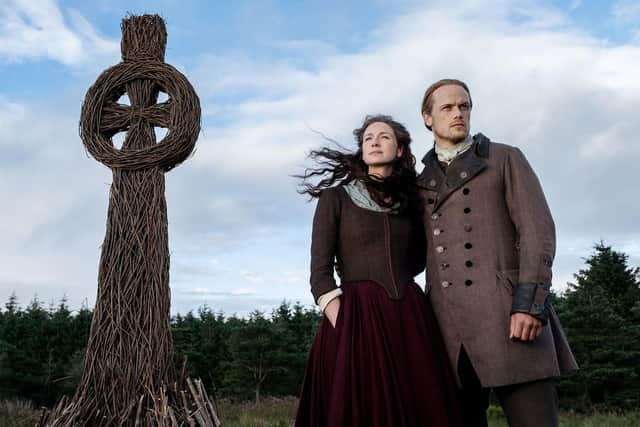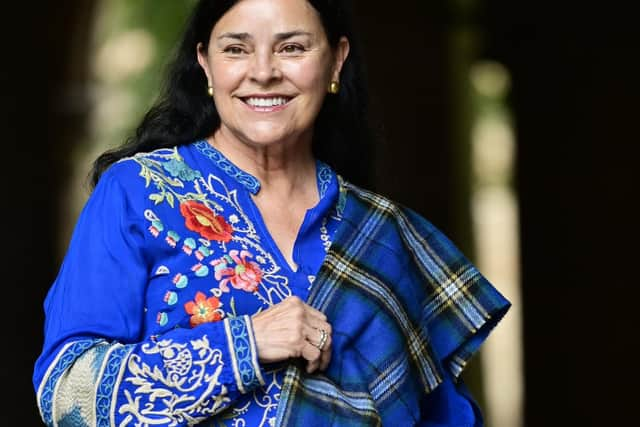Outlander author Diana Gabaldon says 'facts can get in the way of a good story' when writing historical fiction
Outlander author Diana Gabaldon said "facts can get in the way of a good story” as she talked about the balance between truth and fiction in her historical novels.
Ms Gabaldon, whose Outlander book series, which is partly set around the Jacobite rising of 1745, has sold 50 million copies worldwide, was speaking during an academic conference hosted by Glasgow University to discuss themes raised by her work and its impact.
Advertisement
Hide AdAdvertisement
Hide AdShe took part in a round table event with key academics from the university, including Professor Murray Pittock, Bradley Professor of Literature and Jacobite scholar, and Professor Alan Riach, professor of Scottish literature.


During the event she said she agreed with a line in her latest novel that “written history has only a tenuous connection with the actual facts of what happened, let alone the thoughts, actions and reactions of the people involved”.
Professor Riach drew on the differing approaches of early Greek historians Thucydides, who “had to know things happened before he wrote them down” and Herodotus, whose approach was “just tell me your stories”.
Ms Gabaldon, who said she tried to be as historically accurate as possible in her books, said: “Like Herodotus, I agree with the idea that facts can get in the way of a good story. When I was writing I decided I would like to have a witch trial in the story. I was dismayed to learn the last witch to be executed in Scotland died in the 1720s whereas my story was taking place in 1743.”
She told her husband she was “bothered” by this, but he pointed out that the word “fiction” would appear on the side of the book.


“He said ‘ok so you expect people to accept that Stonehenge was a time machine and you are worried that the witch trial is coming 20 years too late? So I thought ‘ok’ and I put in a witch trial. Nobody has complained,” Ms Gabaldon added.
Ms Gabaldon has come under some criticism in the past of the way she has depicted the period and key figures of the time, including Prince Charles Edward Stuart.
Prof Pittock said Outlander had helped to “increase our appetite to understand our past” with Culloden was now the most visited battlefield in the UK, which he linked to the success of Ms Gabaldon’s book.
Advertisement
Hide AdAdvertisement
Hide AdHe added: “What I would say about the balance between literalism and fiction is that in Scotland getting the right past and understanding the past through documents is really important but one of the reasons that a lot of Scots are very precious about history and get worried about Braveheart and worried about fictional interpretation of Scottish history is that people don’t get enough history.
"There is a kind of scarcity issue going on with history which means that people want to protect what they have got but actually we should learn to be generous. It is through that generosity that more people than ever before encounter our history and seek to know more. Culloden lies at the heart of that changing understanding and changing quest to better understand history.”
Comments
Want to join the conversation? Please or to comment on this article.